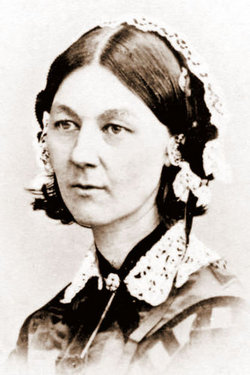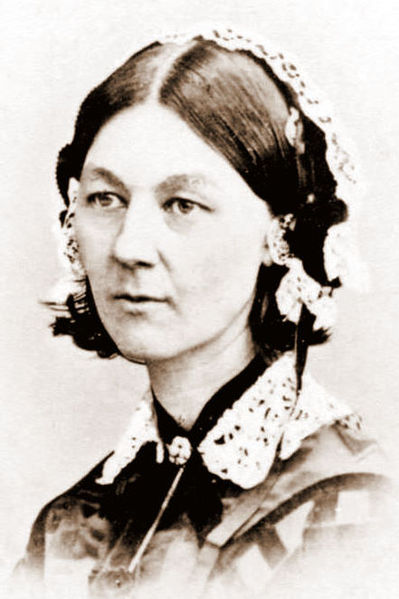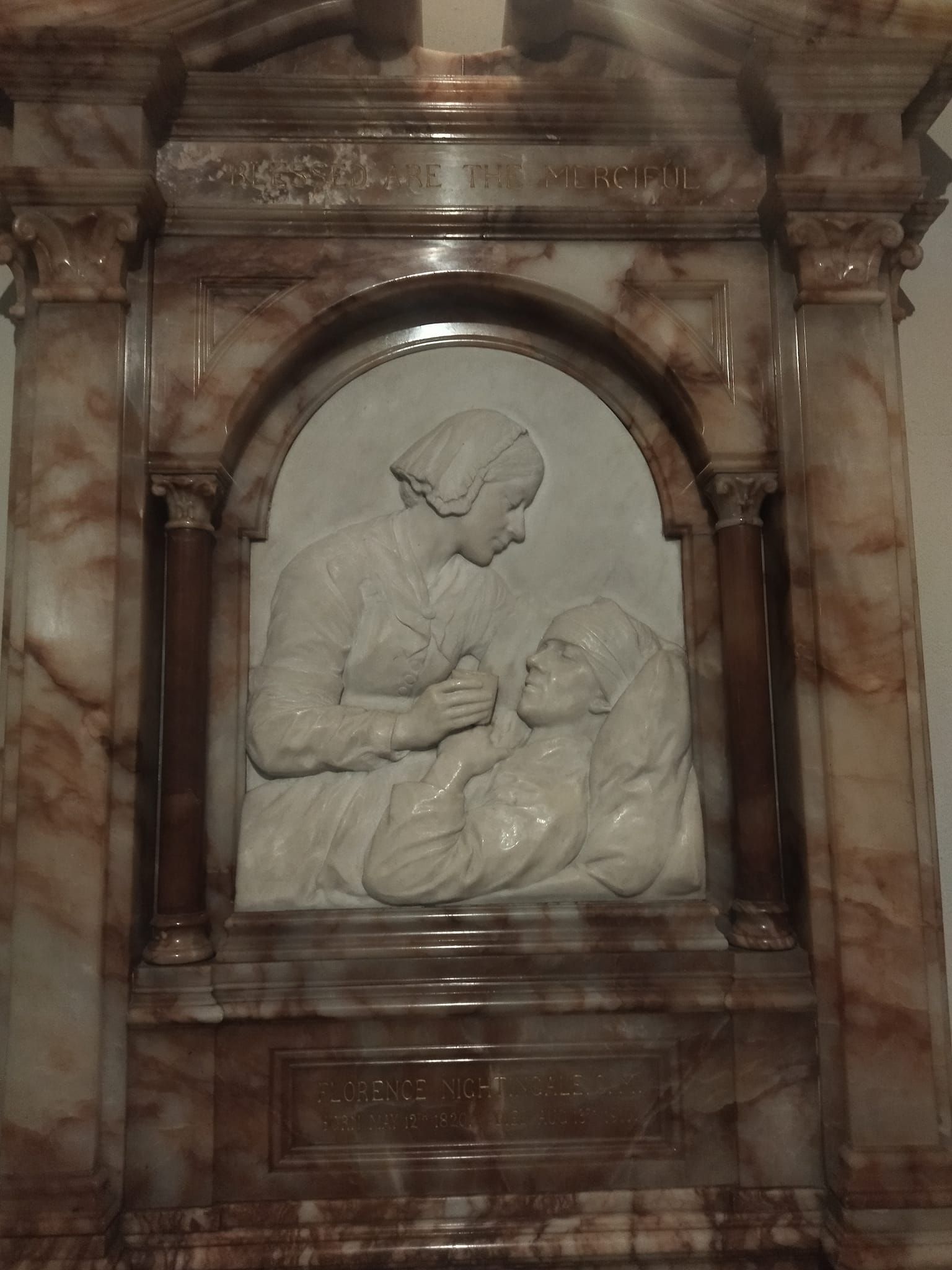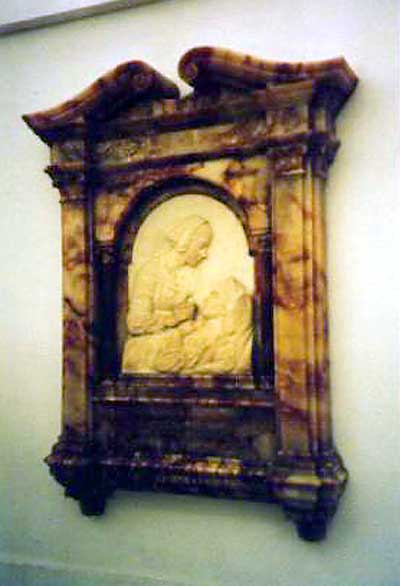Pioneer Modern Nurse, Author. Florence Nightingale was the leading advocate in her day for improved medical care in hospitals, infirmaries, and battlefields. She is remembered for her contributions to creating a highly regarded and respected nursing profession. The examples she sets for nurses are today's standards in the medical profession regarding patient commitment and care, and, not the least, her excellent record keeping, which doctors and hospital administrations currently imitate.
She was born, one of two girls, into a life of wealth and privilege to a British family at the Villa Colombaia in Florence, Italy, named after the city. Florence was home-schooled by her parents and tutors, excelling in mathematics. At seventeen, she decided to dedicate her life to medical care for the sick, resulting in a lifetime commitment to speak out, educate, overhaul, and sanitize the appalling healthcare conditions in England. Over the objections of her parents, she received nursing training in Germany. Upon return to England, she became head of a nursing home that catered to wealthy women.
In 1854, Britain was involved in the war against the Russians (Crimean War). British battlefield medical facilities were deplorable, prompting Minister at War Sidney Herbert to appoint Florence to oversee the care of the wounded. She arrived in Constantinople, Turkey, with a company of 38 nurses. The introduction of female nurses in the military hospitals was a major success. Sanitary conditions were improved while nurses worked as capable assistants to physicians and raised the morale of the British soldiers by acting as bankers, sending the injured men's wages home, writing letters to their families, and reading to the wounded. In a bit of trivia, Florence Nightingale became known as "The Lady with the Lamp" during the Crimean War because she initially made her rounds on horseback and, at night, used an oil lamp to light her way. Her duties grew to require a mule cart, and eventually, her station conferred a carriage with a hood and curtains.
Upon the war's conclusion, Florence returned home, receiving a large amount of money raised by public subscription in gratitude for her efforts. She had been well provided with a hefty monthly stipend by her wealthy father but gladly accepted the funds and used the money to establish the Nightingale Training School for nurses at St. Thomas' Hospital in London. It raised nursing to an accepted, highly respected profession. An applicant received a full year of training with lectures but mainly practical ward work under the supervision of a ward sister. Once trained, the nurses were sent to staff hospitals in Britain and abroad, and some established other nurse training schools. In 1860, her best-authored work, "Notes on Nursing," outlining nursing principles, was published. It is still in print today, with translations in many foreign languages. She has published some 200 books, reports, and pamphlets. She devoted her attention to the school's organization and scrutinized its training program for the rest of her life. Today, there is a Florence Nightingale Museum at St. Thomas Hospital in London, where she founded the nursing school. Exhibits, artifacts, and folklore are displayed, including an exhibit featuring the preserved owl Athena, her little pet companion who lived in her pocket.
Amazingly, she lived to be ninety, bedridden and blind; Florence passed away while sleeping at her residence, 10 South Street in the west end of London. Burial in Westminster Abbey was an option, but Florence wished to be buried with only a simple private funeral at the family plot, then interred beside her parents in St. Margaret's Churchyard at East Wellow. Pallbearers at the graveside were six British Army members. She specified that only two persons would accompany her coffin. The final ceremony consisted of singing one religious hymn. However, funeral arrangements became public knowledge, and upon arrival of the burial day, thousands lined the roadway and filled the churchyard, resulting in little privacy. She has a memorial in St. Paul's Cathedral, where a formal memorial service was held.
England has given Florence Nightingale numerous awards and honors. She received the Order of Merit of the British Empire, the first woman recipient from Queen Victoria, and the Honorary Freedom Award of the City of London. The US Navy launched a namesake troop transport during World War II, "USS Florence Nightingale," which served gallantly during the war, receiving four battle stars. Each year, the International Nurses Day is celebrated on her birthday.
Pioneer Modern Nurse, Author. Florence Nightingale was the leading advocate in her day for improved medical care in hospitals, infirmaries, and battlefields. She is remembered for her contributions to creating a highly regarded and respected nursing profession. The examples she sets for nurses are today's standards in the medical profession regarding patient commitment and care, and, not the least, her excellent record keeping, which doctors and hospital administrations currently imitate.
She was born, one of two girls, into a life of wealth and privilege to a British family at the Villa Colombaia in Florence, Italy, named after the city. Florence was home-schooled by her parents and tutors, excelling in mathematics. At seventeen, she decided to dedicate her life to medical care for the sick, resulting in a lifetime commitment to speak out, educate, overhaul, and sanitize the appalling healthcare conditions in England. Over the objections of her parents, she received nursing training in Germany. Upon return to England, she became head of a nursing home that catered to wealthy women.
In 1854, Britain was involved in the war against the Russians (Crimean War). British battlefield medical facilities were deplorable, prompting Minister at War Sidney Herbert to appoint Florence to oversee the care of the wounded. She arrived in Constantinople, Turkey, with a company of 38 nurses. The introduction of female nurses in the military hospitals was a major success. Sanitary conditions were improved while nurses worked as capable assistants to physicians and raised the morale of the British soldiers by acting as bankers, sending the injured men's wages home, writing letters to their families, and reading to the wounded. In a bit of trivia, Florence Nightingale became known as "The Lady with the Lamp" during the Crimean War because she initially made her rounds on horseback and, at night, used an oil lamp to light her way. Her duties grew to require a mule cart, and eventually, her station conferred a carriage with a hood and curtains.
Upon the war's conclusion, Florence returned home, receiving a large amount of money raised by public subscription in gratitude for her efforts. She had been well provided with a hefty monthly stipend by her wealthy father but gladly accepted the funds and used the money to establish the Nightingale Training School for nurses at St. Thomas' Hospital in London. It raised nursing to an accepted, highly respected profession. An applicant received a full year of training with lectures but mainly practical ward work under the supervision of a ward sister. Once trained, the nurses were sent to staff hospitals in Britain and abroad, and some established other nurse training schools. In 1860, her best-authored work, "Notes on Nursing," outlining nursing principles, was published. It is still in print today, with translations in many foreign languages. She has published some 200 books, reports, and pamphlets. She devoted her attention to the school's organization and scrutinized its training program for the rest of her life. Today, there is a Florence Nightingale Museum at St. Thomas Hospital in London, where she founded the nursing school. Exhibits, artifacts, and folklore are displayed, including an exhibit featuring the preserved owl Athena, her little pet companion who lived in her pocket.
Amazingly, she lived to be ninety, bedridden and blind; Florence passed away while sleeping at her residence, 10 South Street in the west end of London. Burial in Westminster Abbey was an option, but Florence wished to be buried with only a simple private funeral at the family plot, then interred beside her parents in St. Margaret's Churchyard at East Wellow. Pallbearers at the graveside were six British Army members. She specified that only two persons would accompany her coffin. The final ceremony consisted of singing one religious hymn. However, funeral arrangements became public knowledge, and upon arrival of the burial day, thousands lined the roadway and filled the churchyard, resulting in little privacy. She has a memorial in St. Paul's Cathedral, where a formal memorial service was held.
England has given Florence Nightingale numerous awards and honors. She received the Order of Merit of the British Empire, the first woman recipient from Queen Victoria, and the Honorary Freedom Award of the City of London. The US Navy launched a namesake troop transport during World War II, "USS Florence Nightingale," which served gallantly during the war, receiving four battle stars. Each year, the International Nurses Day is celebrated on her birthday.
Bio by: Donald Greyfield
Family Members
Advertisement
See more Nightingale memorials in:
Advertisement








